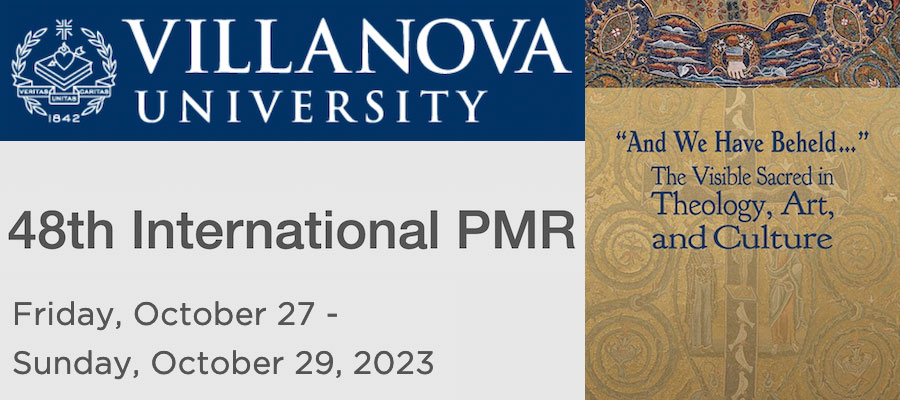48th International Patristic, Medieval and Renaissance Conference, Villanova University, October 27–29, 2023
The Patristic, Medieval, and Renaissance Studies Conference (PMR) at Villanova University invites you to participate in its 48th International PMR Conference.
As always, the PMR makes an OPEN CALL to scholars, institutions, and societies to propose papers, panels, or sponsored sessions in all areas and topics in Late Antiquity/Patristics, Byzantine Studies, Medieval Studies, Islamic Studies, Jewish Studies, and Renaissance & Reformation Studies.
The PMR committee this year makes a special invitation to scholars from all disciplines in these fields to address our plenary theme: “And We Have Beheld…” The Visible Sacred in Theology, Art, and Culture.
Christian traditions have long struggled with how to “see” God. Even in Paul’s description of Jesus as “the image of the invisible God” (Col. 1.15) captures a tension rather than resolves it… the Image of the Invisible. While Jewish and Islamic traditions have been more resolutely iconoclastic, each tradition seeks a language for “seeing the sacred” in one way or another. Wrestling with this tension is not just an aesthetic choice; it has implications for the theology of the community or church, the sacraments or signs, for political theology, and beyond. The PMR’s plenary theme this year will explore the tensions between the visible and the invisible in all these ways under the banner of the “visible sacred.” We hope to hear papers from art historians, theologians, historians, philosophers, scholars of Latin, Greek, Syriac and other vernacular literatures, from the various regions and time periods from the early Common Era up into the early modern world, all in conversation around this fundamental tensile phrase, the visible sacred.
As is our custom, the call for papers will be open beyond our plenary theme, and scholars are encouraged to propose papers and panels on all aspects of the premodern Mediterranean and European cultures of Judaism, Christianity, and Islam. Focusing papers on the visible sacred and related themes is encouraged, but not required.
